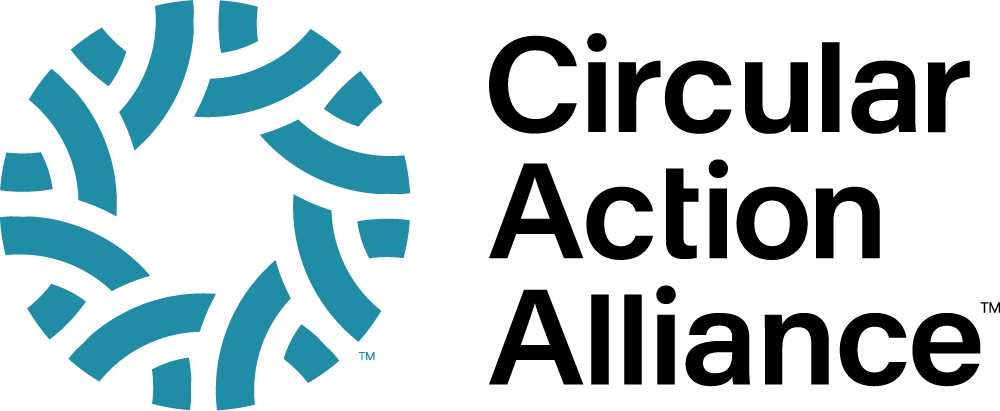
Producer Resource Center
CAA has assembled resources to help producers better understand and prepare for their obligations in states that have enacted EPR laws for paper and packaging. Producers are encouraged to visit the individual state pages under “States” for more detailed information and to subscribe to email updates to stay on top of the latest developments.
Producer Definitions
Each company must review the producer definition under each state’s packaging EPR law and determine whether it is a covered producer in California, Colorado, and/or Oregon.
Please consult with your legal counsel if you are unsure and make a selection based on the information currently available. CAA is unable to provide legal advice.
Companies will have an opportunity to amend their registrations if needed. The definition of “Producer” varies in each state's law, and you should work with your legal counsel to verify where your company may have legal obligations.
If there is no brand owner or domestic producer responsible for a brand, then the producer may be the packaging manufacturer or the company that first imports the product and the associated packaging into the United States. In Oregon, the obligated entity for foodservice ware is the supplier.
If you require more information, please consult with your legal counsel.
Exemptions: Producer exemptions differ in each state’s laws. All three states have a small producer exemption and exemptions for certain materials. Please consult with your legal counsel if you are unsure whether your company will be exempt or not. CAA is unable to provide legal advice.
Relevant Statutes:
California Plastic Pollution and Packaging Producer Responsibility Act
Colorado Producer Responsibility Program for Statewide Recycling Act
If Questions Remain: Please consult with your legal counsel if you are unsure if your company is covered, and make a selection based on the information currently available. CAA is unable to provide legal advice. Companies will have an opportunity to amend their registrations if needed.
CAA is developing guidance materials to provide clarity to producers on their obligations under each state’s law, including the definition of obligated producer, materials included in the state’s program, and material data reporting requirements. This guidance will be finalized and shared with producers in 2024, as regulations are finalized. In the meantime, producers may also review CAA’s Producer Compliance Center for more information.
Any company that expects to be considered a covered producer under California, Colorado, and/or Oregon’s paper and packaging EPR laws, and which is not otherwise exempt from registration under those laws, must complete the Covered Producer Registration form as the first step in the producer registration process with CAA by July 1, 2024.
The Covered Producer Registration Form requires the following information:
Confirmation the company is an obligated producer based on its understanding of the legal definitions.
Producer’s legal business name.
States in which the company is likely to be considered an obligated producer.
Primary contact’s email address and phone number. This will enable CAA to notify your company when it is time to accept the applicable requirements of CAA’s producer responsibility program plans.
Companies will have an opportunity to update information if needed.
Producers who complete CAA’s registration form before July 1, 2024, will be considered registered with CAA. The primary contacted listed will receive a confirmation email upon completing the registration form. Please save this email for your records.
Producer Registration
Producer Working Group
The eighth meeting of Circular Action Alliance's Producer Working Group (PWG) will be held on Tuesday, June 11, at 12 pm ET/10 am MT/9 am PT. PWG participation is open to all producers registered with CAA, trade associations representing producers, and legal counsel to producers. CAA may follow up with you to confirm the producer/s you are representing. This meeting will not be recorded to encourage open discussion.
Any company that expects to be considered a covered producer under California, Colorado, and/or Oregon’s paper and packaging EPR laws, and which is not otherwise exempt from registration under those laws, must complete the Covered Producer Registration form as the first step in the producer registration process with CAA. Only those producers who have completed the form may participate in the PWG.
Registration closes at noon ET on Monday, June 10.
Producer Onboarding Sessions
In these regularly scheduled webinars, the basics of EPR, CAA, producer requirements, and producer registration with CAA will be covered. The webinars will leave plenty of time for producer questions.
Participation is open to all producers, trade associations representing producers, and legal counsel to producers. CAA may follow up with you to confirm the producer/s you are representing. This meeting will not be recorded to encourage open discussion.
Participation in a Producer Onboarding Session is not required to join the Producer Working Group but is highly encouraged due to the complexity of the topic.
Multiple sessions are scheduled for your convenience.
Producer FAQ
-
Each company must review the producer definition under each state’s packaging EPR law and determine whether it is a covered producer in California, Colorado, and/or Oregon.
Please consult with your legal counsel if you are unsure and make a selection based on the information currently available. CAA is unable to provide legal advice.
Companies will have an opportunity to amend their registrations if needed. The definition of “Producer” varies in each state's law, and you should work with your legal counsel to verify where your company may have legal obligations.
If there is no brand owner or domestic producer responsible for a brand, then the producer may be the packaging manufacturer or the company that first imports the product and the associated packaging into the United States. In Oregon, the obligated entity for foodservice ware is the supplier.
If you require more information, please consult with your legal counsel.
Exemptions: Producer exemptions differ in each state’s laws. All three states have a small producer exemption and exemptions for certain materials. Please consult with your legal counsel if you are unsure whether your company will be exempt or not. CAA is unable to provide legal advice.Relevant Statutes:
California Plastic Pollution and Packaging Producer Responsibility Act
Colorado Producer Responsibility Program for Statewide Recycling Act
If Questions Remain: Please consult with your legal counsel if you are unsure if your company is covered, and make a selection based on the information currently available. CAA is unable to provide legal advice. Companies will have an opportunity to amend their registrations if needed.
CAA is developing guidance materials to provide clarity to producers on their obligations under each state’s law, including the definition of obligated producer, materials included in the state’s program, and material data reporting requirements. This guidance will be finalized and shared with producers in 2024, as regulations are finalized. In the meantime, producers may also review CAA’s Producer Compliance Center for more information.
-
CAA’s producer registration deadline is July 1, 2024.
To register, producers must complete CAA’s Covered Producer Registration Form. To ease producer compliance, CAA is working to register all producers in Colorado, California, and Oregon by July 1, 2024.
Early producer registration helps:Reduce the number of non-compliant obligated producers in the system; and
Provide CAA with more precise producer data to inform accurate and fair fee schedules.
-
California, Colorado, Maine, and Oregon EPR laws have different fee collection requirements and timelines. Generally, when fees are collected is up to the PRO, although Colorado requires producers to pay dues to CAA on or before January 1, 2026.
Producers who register with CAA will be updated about data reporting and fee payment timelines.
-
Fee schedules will depend on several factors, including but not limited to state needs assessment findings, rulemaking decisions, the scope of each state’s legislation, and approved program plans.
Producers can stay on top of the latest fee payment information by registering with CAA. Other stakeholders can receive news and information through CAA’s newsletter and by attending CAA’s quarterly stakeholder webinars.
-
Producers who register with CAA will be notified of upcoming requirements and any requests for information or follow-up conversations with CAA.
CAA is reaching out to national and state trade associations, business groups and Chambers of Commerce to raise awareness for the organization, regulatory processes and milestones, and producer requirements.
CAA also hosts webinars open to all stakeholders and producers to raise awareness of developments in the regulatory processes and upcoming requirements in each state.
CAA will share more information in the future about formal opportunities to participate in the organization, prior to registration deadlines and plan implementation.
-
Retailers may have unique obligations under EPR programs. Across states, if a retailer has private label products that use covered materials, or that are covered materials themselves (e.g. foodware), that retailer will be an obligated producer. Retailers may also work with the owners of the brands they sell to provide information about products that were sold in an EPR state. Lastly, retailers and wholesalers in California may have additional reporting requirements for covered materials that CAA is working to clarify with CalRecycle.
Please consult with your legal counsel if you are unsure whether you are a covered producer. CAA is unable to provide legal advice.



